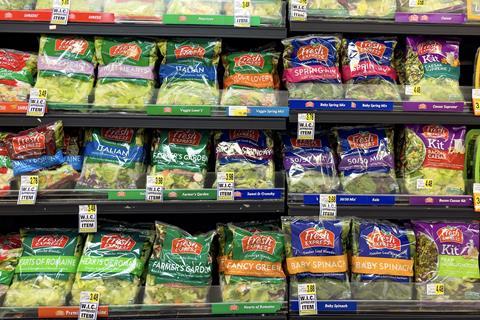The association stressed the importance of exempting raw produce from ultra-processed food classifications while highlighting that minimal processing can improve access and consumption of fruits and vegetables

The International Fresh Produce Association (IFPA) has submitted comments to the US Departments of Agriculture (USDA) and Health and Human Services (HHS) regarding the development of a definition for ’ultra-processed foods’ (UPFs).
The association emphasised that the effort is an important opportunity to improve the overall nutritional quality of the US food supply while ensuring that fresh fruits and vegetables remain central to public health and nutrition strategies.
“To truly improve Americans’ diets, we need a coordinated effort that makes it easier to eat more fruits and vegetables while also raising the overall nutritional quality of foods available,” said Mollie Van Lieu, IFPA’s vice president of nutrition and health.
“Eating fruits and vegetables is proven to support heart health, lower blood pressure, and help prevent chronic disease yet most Americans still fall short, even when they understand the benefits.”
While dietary guidance recommends that fruits and vegetables make up half the plate, only one in ten US adults meet this goal.
At the same time, six in ten adults have at least one chronic condition, many of which are linked to poor nutrition.
In its comments, IFPA urged USDA and HHS to explicitly exempt raw fruits, vegetables, and tree nuts from any definition of ultra-processed foods and prioritise policies that increase fruit and vegetable consumption as part of the national strategy to reduce diet-related chronic disease.
It also said the bodies should recognise that convenience and perishability are key barriers to fruit and vegetable consumption, and that minimal processing can improve access and intake.
“Value-added fruits and vegetables, like bagged lettuce, baby carrots and sliced apples, and others, should not be classified as processed simply because they undergo minimal handling that can improve fruit and vegetable consumption,” IFPA noted.
Beyond addressing UPFs, IFPA’s recommendations encourage USDA and HHS to strengthen federal nutrition programmes and policies proven to increase fruit and vegetable consumption.
This includes produce prescription programmes, which have lowered healthcare costs and improved outcomes for patients with chronic conditions; front-of-package nutrition labelling, to better inform consumers and prevent misleading ’fruit and vegetable’ claims on products with little or no real produce; supplemental Nutrition Assistance Program (SNAP) nutrition incentives and Women, Infants, and Children (WIC) Cash Value Benefits, which improve affordability and access to produce; and school meal and snack programmes, including the Fresh Fruit & Vegetable Program (FFVP), which have shown lasting benefits in improving children’s eating habits and health.
“As the administration shapes its food and nutrition agenda, we urge that fruits and vegetables be at the heart of all federal health efforts,” Van Lieu added.
“Simply put, we will not achieve our mutual goal to improve the nation’s diet without Americans increasing their fruit and vegetable consumption.”



